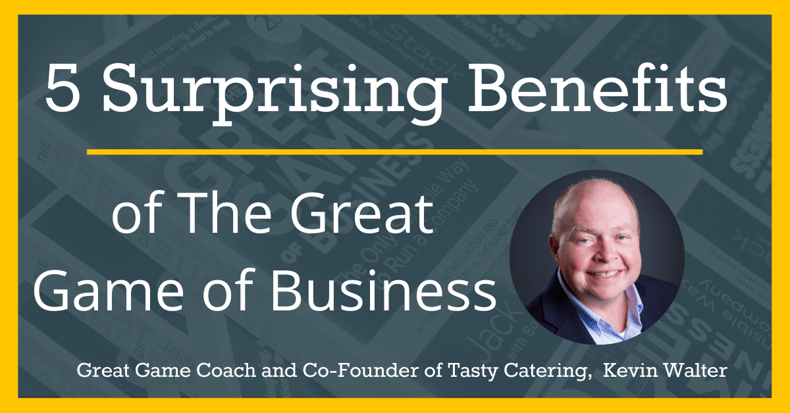
Like many business leaders and owners, my partners and I found it difficult to find time to work “on” the business, because we were so busy working “in” the business.
We were already working 60-hour workweeks and with a rapidly growing company, we feared working “on” the business would result in 70+ hour workweeks. Our company had increased the top line at a breakneck pace, but the bottom line lagged behind and our bonus plan was flawed.
For six years we struggled to adjust our bottom line, as owners we became frustrated and we could see our employees becoming less and less motivated. Although, we frequently shared our P&L statements we knew that this method was not being proactive enough. Eventually, we made the decision to implement The Great Game of Businesses® open-book management technique. Initially, we were worried about the investment it would take to educate our employees on Great Game™ and financial literacy, as well as the ongoing time investment this method would take in order to be successful. With all costs aside, we knew that this was a risk we had to take in order to properly change our approach in business leadership and to increase profits and develop a sustainable bonus plan.
The Great Game worked as advertised. Profits increased; employees started to think, feel and act like owners. In fact, it worked so well that it provided some unexpected benefits to my partners and I.

Aside from the 75 percent increase to our bottom line, here are some of the unexpected benefits of The Great Game of Business:
- Strategize – by having the opportunity to focus on the bigger picture of the organization, we found ourselves with time to focus on the overall structure of our company, our goals and where we wanted to advance and how.
- Grow - we had time to launch two new companies with a few of our innovative employees as our partners.
- Focus on our passions - one of my partners was able to write a book and begin a speaking tour. I was able to take more vacation time and play golf more often.
- Spend time with our families - I finally had a semblance of the work-life balance I had only dreamed about. No more working seven days a week. My children’s dance performances and soccer games became something I could look forward to instead of just another dreaded item on my calendar.
- Find new hobbies - I became so passionate about the Great Game and its effect on employee behavior and the bottom line that I found the time to become a licensed Great Game coach.
Now, this has evolved into our employees managing the business, while we pursue other business interests. Why? Because they are confident they can run the business better and more efficiently. Also, they know that they can replace what we did working “in” the business with someone at a lower pay rate, leading to more funds in the bonus pool!
While implementing The Great Game of Business takes hard work and a strong commitment to teaching your employees the business, the long-term gains far outweigh the short-term pains. You can create a successful sustainable organization that essentially runs itself.
Other Articles You Might Like:
.png)









.png)




-5.png)

